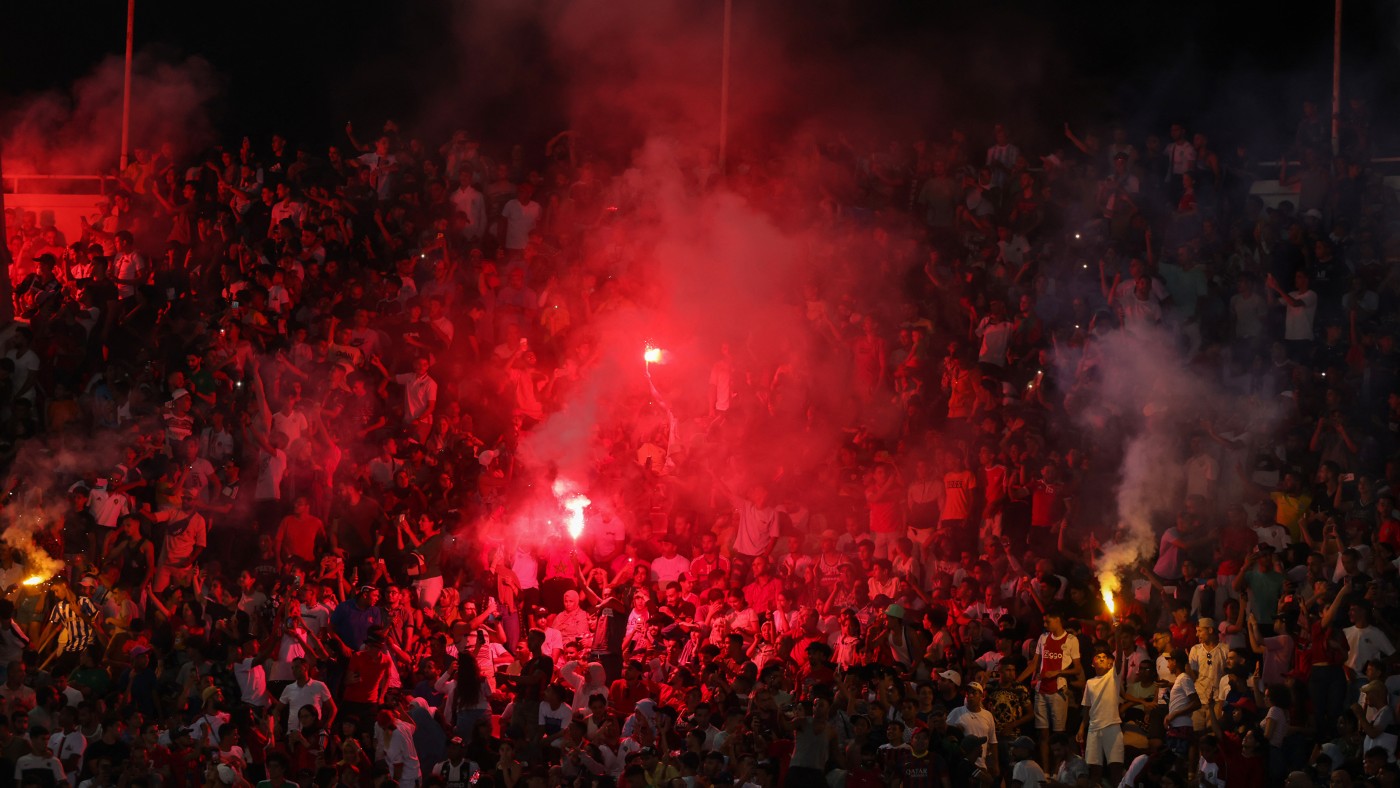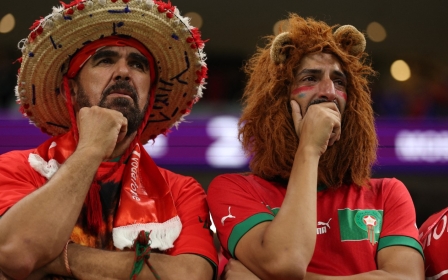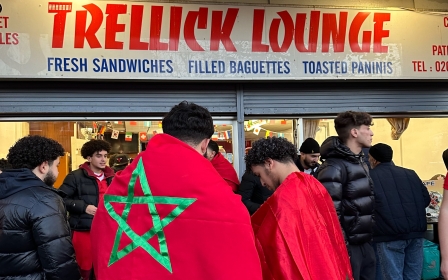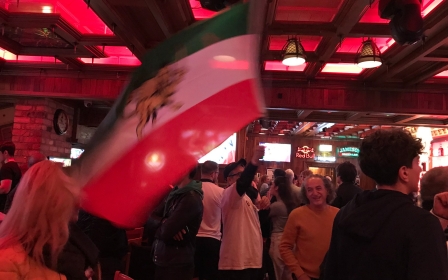Morocco's women are ready to take on the football world
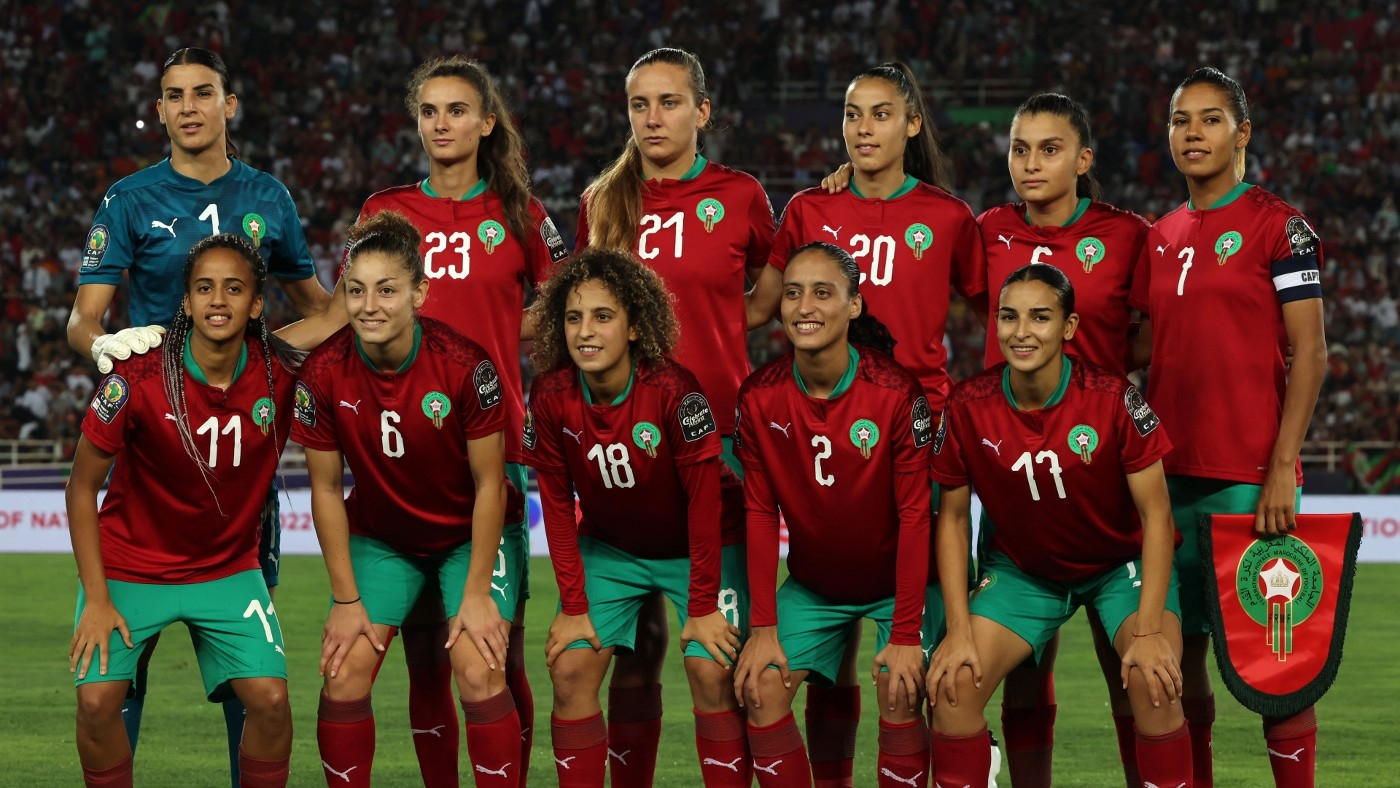
When the Moroccan women’s football team steps out onto the pitch to face Germany on Monday 24 July, it will be making history.
For the first time, the Women’s World Cup will feature a team from the Middle East and North Africa. And while the odds are against the debutants going far in the tournament, recent events - and the unprecedented success of their male counterparts - have shown that anything can happen.
Whatever the outcome, the team’s place at the World Cup has shown neighbours and rivals what is possible.
“We are proud of Morocco in Lebanon,” Wael Chehayeb, of the Lebanese Football Association, told Middle East Eye. “To have a women's team qualify for the World Cup from the Arab world is a great achievement. It is a big deal and an incentive for all of us. We have a good under-19 women’s team in Lebanon and this can be an inspiration for them, and for everyone.”
It’s been an incredible 14 months for football in Morocco. In November and December, the men’s national team beat European giants Belgium, Spain and Portugal on their way to the World Cup semi-finals, where they gave defending champions France a tough test. Moroccan fans filled the stadiums in Qatar, bringing a North African atmosphere to the world’s biggest stage.
New MEE newsletter: Jerusalem Dispatch
Sign up to get the latest insights and analysis on Israel-Palestine, alongside Turkey Unpacked and other MEE newsletters
At club level, Casablanca’s Wydad AC won the 2022 African Champions League and reached the final in 2023, losing to Cairo’s Al Ahly.
“We will never forget what happened in Qatar,” said Moroccan fan Yasmine Hassan. “We knew that we had a good team and we didn’t need to be scared of anyone, but we did not expect that we would almost get to the final.”
This golden period started with the women's team. In April 2022 Morocco hosted the Women’s Africa Cup of Nations for the first time. Expectations were low - no North African team had ever made it out of the group stages.
That all changed. The Atlas Lionesses won all three games in their group and a quarter-final against Botswana.
Then came a semi-final against Nigeria, the team that had won 11 of the 13 previous tournaments. Everyone assumed Morocco’s run would come to an end, but the team won, earning a place in the final against South Africa.
The real story was how the country got behind the team. Stadiums were bursting with over 50,000 fans and cafes were full of spectators. Morocco’s King Mohammed VI sent the team a good luck message. South Africa ended up taking the title, but everything had changed.
Now at the World Cup, Yasmine Hassan told MEE, “Everyone is looking forward to seeing what the team can do. This is a new situation for the women, but they have shown before that they are full of surprises.”
The World Cup
Though Morocco did not claim the Women’s Africa Cup of Nations, there was a bigger prize at stake: qualification for the 2023 World Cup.
After their first game on the global stage against Germany in Melbourne, Morocco meet South Korea on 30 July and Colombia on 3 August, meaning they are facing teams from Europe, Asia and South America. Those teams are ranked 2nd, 17th and 25th in the world respectively, while Morocco are 72nd and considered rank outsiders.
“We know that we are the underdogs of this group, but that does not prevent us from making it difficult for all these nations,” said Morocco coach Reynald Pedros, as he named the 28-player squad on 19 June. “We have been preparing for the games with an absolutely incredible state of mind and work.”
'Everyone is looking forward to seeing what the team can do. This is a new situation for the women… but they are full of surprises'
- Yasmine Hassan, Morocco fan
There is little pressure on the team to get to the next stage. The challenge is to show the watching public that women’s football in the Arab world is on the rise and can be a force to be reckoned with in the years to come.
“It’s been an incredible time for the country; for Arab women; for Arab women in sport,” Morocco’s star striker Rosella Ayane said in a recent interview.
“Sometimes, I really need to take a step back and actually look at what we’ve achieved, because sometimes I can’t put it into words. So, it’s been a real journey and one that I’m going to be proud of for the rest of my life."
Moroccan success can attract more media interest, leading to more attention, sponsors, funding, fans and revenue, which will enable more girls to take up the sport and actually make a living from it.
“The growth of women’s football is a promising start,” said Pedros.
Inspiration in the Arab world
Women’s football in the Middle East has been slow to take off, but is gathering pace.
Jordan has been one of the frontrunners, Iran appeared at the 2022 Asian Cup, and others are trying to catch up. Saudi Arabia’s newly established women’s national team played its first ever game in 2022, and the kingdom is now bidding to host the 2026 Asian Cup.
There is now a national women’s league in Saudi Arabia and, according to the country’s football federation, 50,000 girls have signed up for a schools’ league.
Earlier this year, the national team was officially ranked by Fifa, an important milestone. “Entering the Fifa rankings has been the moment we’ve been building up towards, and signals just the beginning of what we want to achieve with these girls," Lamia Bahaian, vice president of the Saudi Football Federation and supervisor of the women’s football department, told Fifa. "They can write their own history now.”
Now, as the Women’s World Cup begins in Australia and New Zealand, this is what Morocco will be looking to do. The rest of the region will be watching.
This article is available in French on Middle East Eye French edition.
Middle East Eye delivers independent and unrivalled coverage and analysis of the Middle East, North Africa and beyond. To learn more about republishing this content and the associated fees, please fill out this form. More about MEE can be found here.


